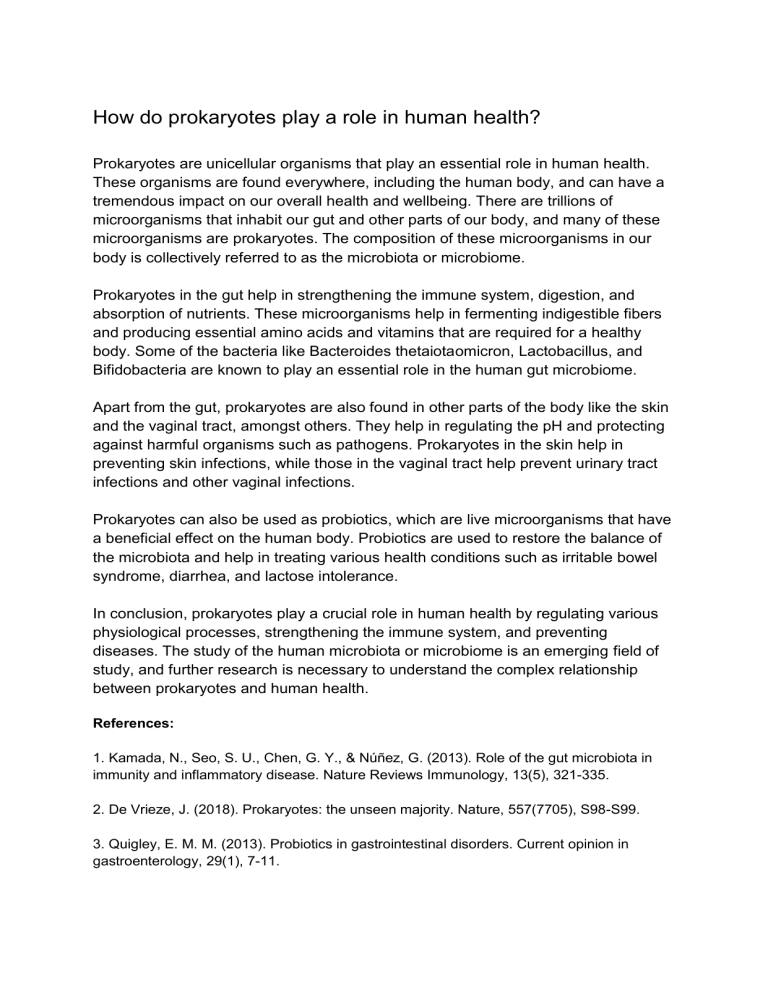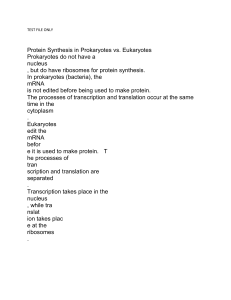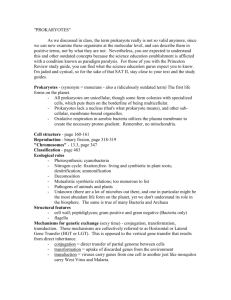
How do prokaryotes play a role in human health? Prokaryotes are unicellular organisms that play an essential role in human health. These organisms are found everywhere, including the human body, and can have a tremendous impact on our overall health and wellbeing. There are trillions of microorganisms that inhabit our gut and other parts of our body, and many of these microorganisms are prokaryotes. The composition of these microorganisms in our body is collectively referred to as the microbiota or microbiome. Prokaryotes in the gut help in strengthening the immune system, digestion, and absorption of nutrients. These microorganisms help in fermenting indigestible fibers and producing essential amino acids and vitamins that are required for a healthy body. Some of the bacteria like Bacteroides thetaiotaomicron, Lactobacillus, and Bifidobacteria are known to play an essential role in the human gut microbiome. Apart from the gut, prokaryotes are also found in other parts of the body like the skin and the vaginal tract, amongst others. They help in regulating the pH and protecting against harmful organisms such as pathogens. Prokaryotes in the skin help in preventing skin infections, while those in the vaginal tract help prevent urinary tract infections and other vaginal infections. Prokaryotes can also be used as probiotics, which are live microorganisms that have a beneficial effect on the human body. Probiotics are used to restore the balance of the microbiota and help in treating various health conditions such as irritable bowel syndrome, diarrhea, and lactose intolerance. In conclusion, prokaryotes play a crucial role in human health by regulating various physiological processes, strengthening the immune system, and preventing diseases. The study of the human microbiota or microbiome is an emerging field of study, and further research is necessary to understand the complex relationship between prokaryotes and human health. References: 1. Kamada, N., Seo, S. U., Chen, G. Y., & Núñez, G. (2013). Role of the gut microbiota in immunity and inflammatory disease. Nature Reviews Immunology, 13(5), 321-335. 2. De Vrieze, J. (2018). Prokaryotes: the unseen majority. Nature, 557(7705), S98-S99. 3. Quigley, E. M. M. (2013). Probiotics in gastrointestinal disorders. Current opinion in gastroenterology, 29(1), 7-11. 4. Marrazzo, J. M. (2015). The vaginal microbiome and women's health. The New England Journal of Medicine, 373(22), 2149-2159.





